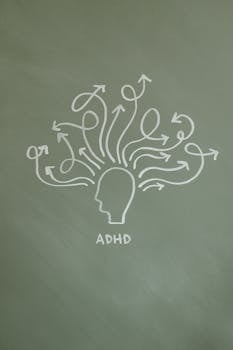What is attention span?

What is attention span?
In today’s fast-paced world, the concept of attention span plays a pivotal role in our productivity and personal development. With countless distractions vying for our focus, understanding attention span is more crucial than ever. It’s not just about how long we can concentrate; it’s about how effectively we can engage with tasks and absorb information.
Defining Attention Span
Simply put, attention span is the length of time you can concentrate on a task or subject before becoming distracted. It varies among individuals and can be influenced by various factors, from age to environment. According to the Cambridge Dictionary, younger children tend to have shorter attention spans, which gradually lengthen as they mature.
The Science of Attention Span
Attention span is often measured through psychological tests and studies that assess how long individuals can focus on a particular task. Researchers utilize various methods, including the Continuous Performance Task (CPT), which requires participants to respond to specific stimuli over a set period. Findings reveal that the average human attention span has declined over the years, leading to concerns about productivity and learning outcomes.
Factors Influencing Attention Span
Several factors can impact our attention span, including:
- Age: As mentioned earlier, children typically have shorter attention spans compared to adults, which evolve with age.
- Environment: A noisy or chaotic environment can hinder focus. A calm setting usually promotes better concentration.
- Digital Distractions: The rise of smartphones and social media has significantly contributed to shorter attention spans. Notifications and constant connectivity can fragment our focus.
Current Trends in Attention Span
Recent research indicates that the average attention span has decreased, particularly in the digital age. A study by Samba Recovery suggests that the average human attention span is now only 8.25 seconds—less than that of a goldfish, which has an attention span of 9 seconds! This alarming trend raises questions about how our digital habits are reshaping our ability to concentrate.
Attention Span in the Digital Age
Smartphones and social media have transformed how we consume information. With everything available at our fingertips, it’s easy to switch from one app to another or scroll endlessly through feeds. This constant barrage of information not only shortens our attention span but can also reduce our ability to engage in deeper, meaningful tasks.
Attention Span Statistics
Statistics reveal a stark reality: attention spans are dwindling. Studies show that many adults struggle to focus on a task for longer than a few minutes without distractions. This decline can be traced back to how we interact with technology. For instance, one study indicated that students now use devices that require different forms of attention, leading to a fragmented focus.
Improving Your Attention Span
While the decline in attention span is concerning, the good news is that there are effective strategies you can implement to enhance your focus.
Mindfulness and Focus Techniques
Incorporating mindfulness practices into your daily routine can significantly improve your attention span. Techniques like meditation help train your brain to concentrate better. According to Post University, regular meditation can increase the brain’s gray matter, which is associated with improved attention and emotional regulation.
Establishing Healthy Routines
Creating healthy daily habits can also boost your attention span. Here are some strategies to consider:
- Prioritize Sleep: Sleep is essential for cognitive functions, including attention. Aim for 7-9 hours each night.
- Exercise Regularly: Physical activity has been shown to enhance cognitive functions and improve concentration.
- Limit Digital Distractions: Set specific times to check your phone or social media to minimize interruptions during work or study sessions.
- Break Tasks into Smaller Chunks: Focus on one task at a time and take breaks in between to recharge your mind.
By fostering a balanced work-life routine, you can enhance your ability to concentrate and maintain focus longer.
Conclusion
Understanding and improving your attention span is vital in both personal and professional contexts. In a world filled with distractions, adopting techniques to enhance focus can lead to greater productivity and fulfillment. As you implement these strategies, you may find that you can not only concentrate better but also enjoy a more balanced, engaging life.
Ultimately, improving your attention span isn’t just about fighting distractions; it’s about enriching your life experiences and achieving your goals with clarity and purpose. If you’re looking for more insight on enhancing your focus, resources like GWU Healthcare MBA can provide valuable tips and exercises tailored to your needs.